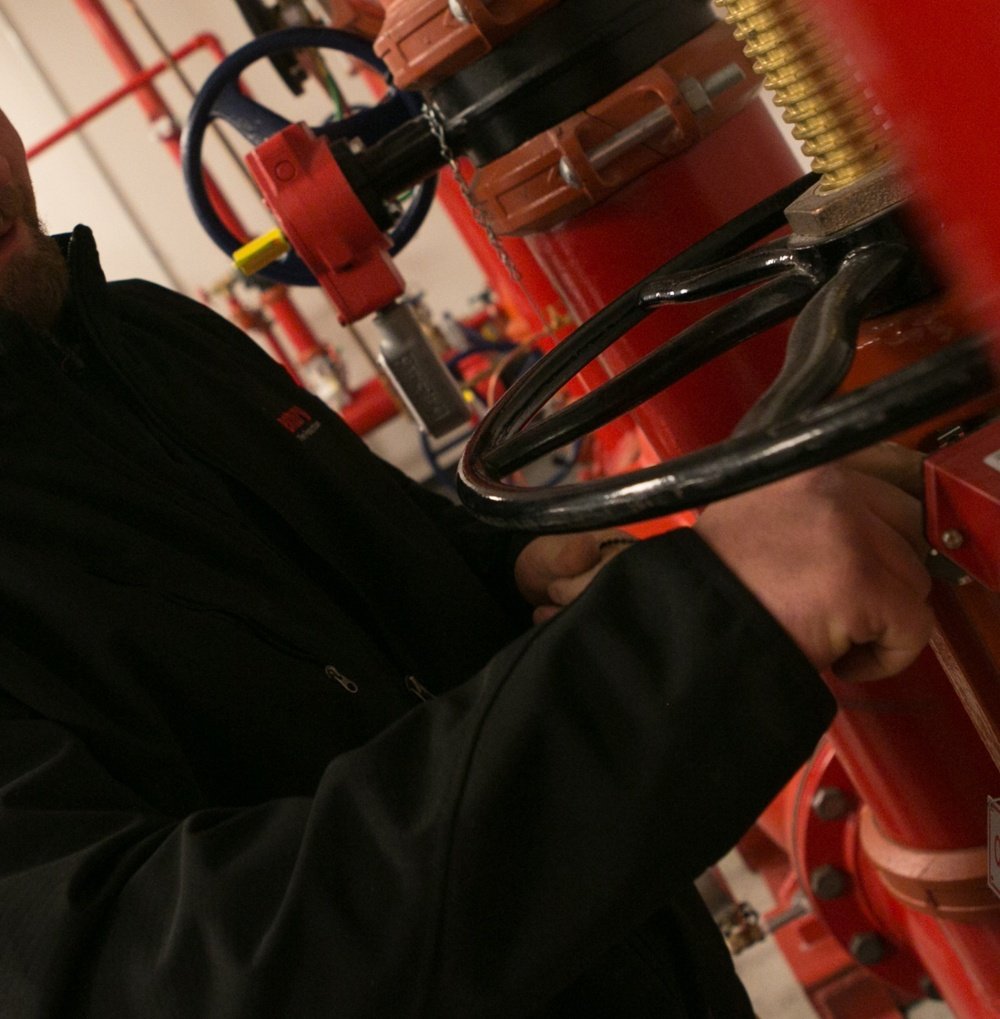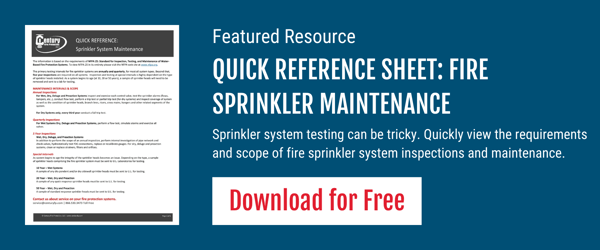Most commercial property owners and managers know that fire system inspections need to be done annually. But is that all that is required?
Properly installed and maintained fire sprinkler systems are key to reducing risk and maintaining compliance. Navigating the code requirements can get tricky. NFPA 25 the Standard for the Inspection, Testing, and Maintenance of Water-Based Fire Protection Systems outlines the frequency and scope of inspections and testing for fire sprinkler systems. If you are responsible for these systems you need to know when inspection, testing and maintenance is required. Do not assume your fire protection contractor is providing what is required by code. DOWNLOAD THE QUICK REFERENCE FOR FIRE SPRINKLER MAINTENANCE
In general, all systems need an annual inspection and test, but that is just the tip of the iceberg. Most systems require more.
Wet, Dry, Pre-action and Deluge Fire Sprinkler Systems require inspection, testing and/or maintenance in the following intervals. To view the detailed test scope performed during each of these intervals, check out The Ultimate Sprinkler Maintenance Cheat Sheet. DOWNLOAD HERE
|
System Type |
Annually |
Quarterly |
3 Year |
5 Year |
10 Year |
20 Year |
50 Years |
|
Wet |
◊ |
◊ |
|
◊ |
◊ |
◊ |
◊ |
|
Dry |
◊ |
◊ |
◊ |
◊ |
|
◊ |
◊ |
|
Pre-action |
◊ |
◊ |
|
◊ |
|
◊ |
◊ |
|
Deluge |
◊ |
◊ |
|
◊ |
|
|
|
So what takes place during the annual inspection?
During the annual inspection, your contractor should inspect and exercise each control valve, test the sprinkler alarms (flows, tampers, etc..), conduct a water flow test at both ends of the system to verify water availability, and record water pressure. They also inspect coverage of system and the condition of the sprinkler heads, branch lines, risers, cross mains, hangers and other related components of the system.
Dry Systems and Pre-action Systems require a partial trip annually which means the technician will cause the valve to change state from air to water without tripping the system and filling the entire pipe network with water. It is only on every third year during the annual inspection, that the entire sprinkler pipe network is filled with water and the technician records the time it takes for the water to reach the most remote point from the riser.
You can read more about 5 year inspection and testing here.
Need help? We are here for you - contact our office.
The information provided is for general informational purposes only. Every fire protection system is unique, with specific inspection, testing, and maintenance requirements determined by system type, manufacturer specifications, building use, and local regulations. Consult a qualified fire protection professional or your local Authority Having Jurisdiction (AHJ) to ensure compliance with applicable standards. Century Fire Protection assumes no liability for actions taken based on this content.


